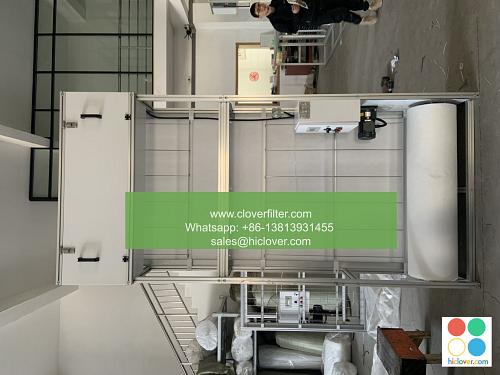Air Filter Systems for Commercial Buildings: Benefits and Options

Air filter systems are a crucial component of commercial buildings, playing a vital role in maintaining indoor air quality (IAQ) and ensuring the health and comfort of occupants. In this article, we will discuss the benefits and options of air filter systems for commercial buildings, highlighting various application areas and key considerations.
Importance of Air Filter Systems in Commercial Buildings
Commercial buildings, such as offices, hospitals, and shopping malls, are prone to indoor air pollution due to the presence of various contaminants, including particulate matter (PM), volatile organic compounds (VOCs), and biological pollutants. Air filter systems help to remove these contaminants, improving IAQ and reducing the risk of respiratory problems, allergic reactions, and other health issues. Additionally, air filter systems can help to increase energy efficiency, reduce maintenance costs, and prolong the lifespan of HVAC systems.
Benefits of Air Filter Systems
The benefits of air filter systems in commercial buildings are numerous, including:
– Improved Indoor Air Quality (IAQ): Air filter systems help to remove contaminants, improving the overall IAQ and creating a healthier indoor environment.
– Energy Efficiency: By reducing the amount of particulate matter and other contaminants in the air, air filter systems can help to increase energy efficiency and reduce energy consumption.
– Extended Equipment Life: Air filter systems can help to prolong the lifespan of HVAC systems by reducing the amount of wear and tear on equipment.
– Cost Savings: Air filter systems can help to reduce maintenance costs and minimize the need for costly repairs.
Options for Air Filter Systems
There are various options for air filter systems in commercial buildings, including:
– HEPA (High Efficiency Particulate Air) Filters: HEPA filters are highly effective at removing particulate matter, including dust, pollen, and other airborne pollutants.
– Activated Carbon Filters: Activated carbon filters are designed to remove VOCs, odors, and other gases from the air.
– UV (Ultraviolet) Light Filters: UV light filters use ultraviolet light to kill bacteria, viruses, and other microorganisms.
– Electrostatic Filters: Electrostatic filters use electrostatic charges to attract and remove particulate matter from the air.
Application Areas
Air filter systems can be applied in various areas of commercial buildings, including:
– Offices: Air filter systems can help to improve IAQ and reduce the risk of respiratory problems in office buildings.
– Hospitals: Air filter systems are critical in hospitals, where the risk of infection and disease transmission is high.
– Shopping Malls: Air filter systems can help to improve IAQ and reduce the risk of respiratory problems in shopping malls.
– Industrial Facilities: Air filter systems can help to remove contaminants and improve IAQ in industrial facilities, such as manufacturing plants and warehouses.
Key Considerations
When selecting an air filter system for a commercial building, there are several key considerations to keep in mind, including:
– Filter Efficiency: The filter efficiency will depend on the type of filter and the specific application.
– Filter Maintenance: Regular filter maintenance is crucial to ensure optimal performance and extend the lifespan of the filter.
– System Compatibility: The air filter system must be compatible with the existing HVAC system.
– Cost: The cost of the air filter system will depend on the type of filter, size, and application.
In conclusion, air filter systems are a vital component of commercial buildings, providing numerous benefits, including improved IAQ, energy efficiency, and cost savings. By understanding the various options and application areas, commercial building owners and managers can make informed decisions when selecting an air filter system, ensuring a healthier and more comfortable indoor environment for occupants. You haven’t asked a question or provided any context. What would you like to talk about or ask? I’ll do my best to help.

